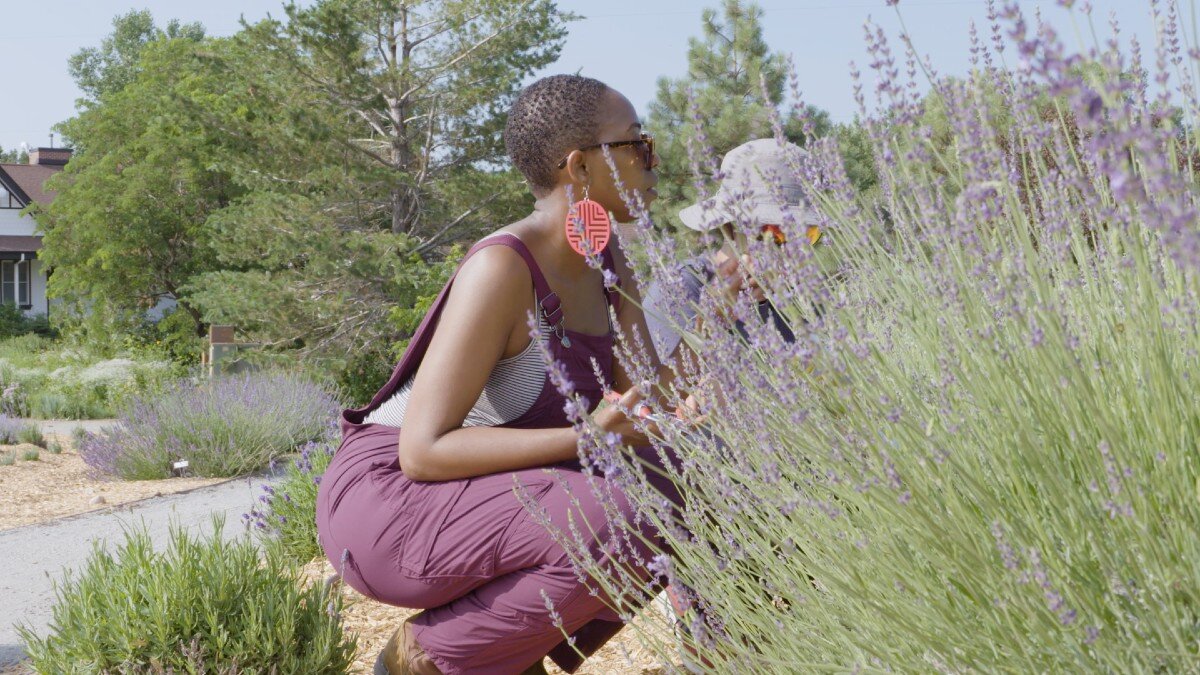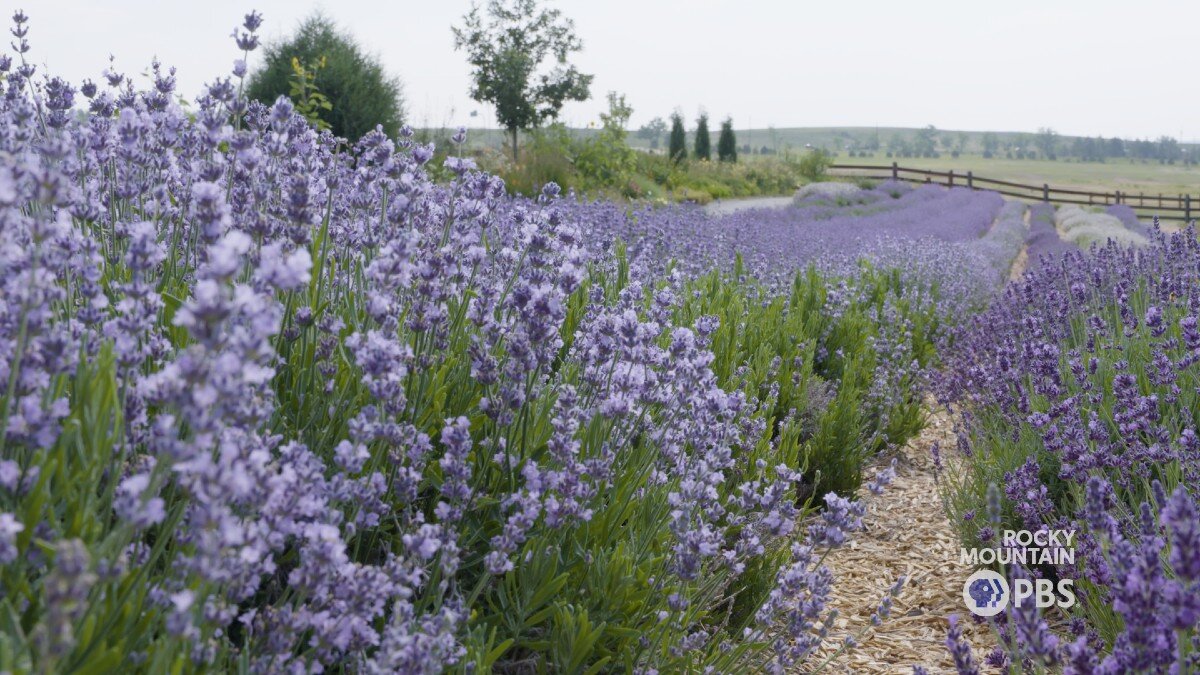Air Force veteran finds healing and meaning through lavender farming

DENVER — For Zephrine Hanson, farming is healing. She believes a garden reflects your mental and physical health.
“Maybe I'm not giving myself enough water. Maybe I'm not being patient with the seeds I've planted. Maybe I need to spend some more time getting the weeds out of my garden,” she illustrated.
Zephrine Hanson is the founder of and a farmer at Hampden Farms. She is also the Development and Strategic Partnership Coordinator at FrontLine Farming and the Lavender Farmer for Denver Botanic Gardens Chatfield Farms.
While Hanson was very interested in farming at a young age, it took her a few decades to find her way to it. Hanson joined the Air Force after high school and became a photojournalist. When she left the Air Force, her passion for health, healing, and wellness—for herself and her family—became a large priority.
Hanson, her husband, and three children moved to Colorado, and she began talking with other veterans about her passions. A fellow veteran shared the Chatfield Farms Veterans Program that helps veterans develop valuable skills for a career in farming. Hanson applied.
The program consists of what Hanson calls “university work” or “bookwork” as well as hands-on work with the plants. The time spent with plants was very healing for her, “even when it’s a bit noisy,” she said, laughing as a small plane hummed overhead.
During the program, the veterans worked with lavender, which Hanson already had a personal connection with: Her children had eczema when they were younger, and she frequently made them a natural body butter with the plant. While in the program, Hanson made it again as a gift—a gift of physical healing.

She asked her instructors what was going to happen to all the lavender, which is primarily used for display. “They said, ‘Go ahead, Zephrine, have at it,’” she recalled. And so she became in charge of maintaining the lavandins—yes, lavandins.
Lavandin is a naturally occurring hybrid between English lavender (the most well-known type) and Portuguese lavender. While there are many differences between lavandin and lavenders, the most prominent are in size, oil production, and smell. Hanson explained that lavandin is generally taller, produces more oil (although considered lower quality), and smells more herbal, or “medicinal.” Lavandins are also sterile.
Hanson also started her own farm after finishing the veteran’s program in 2017. Hampden Farms is a “backyard micro farm and also a farm business,” she explains.
She quickly found how difficult it was to make a living as a farmer. “And that’s unacceptable,” she declared. Through her farm, she hopes to be a source of community connection.
Working with organizations and farms like Frontline Farming, East Denver Food Hub, and Mile-High Farmers, Hanson focuses on “how to grow a business while farming and make it profitable. Farmers should have thriving wages. Ag workers should have thriving wages.”
In this work, she weaves in her lavender. She is currently looking at how profitable lavender can be while collaborating with the farming community. Profitability can be challenged by various factors. “We lost plants this year, right. So that's going to impact how much money you can make with lavender,” she explained.

Through her connection with the gardens, she provides locally sourced lavender to companies and organizations in the area. She explains that it can be used in a variety of ways to ensure maximum profitability: “People, when they order their flower CSA, they can order a lavender CSA…Collaborating with other local makers and providing lavender for a product. And then collaboratively selling products that go along with that.”
Hanson hopes to continue collaborating with organizations that are already doing this work.
“They already have products," she said. "They already are working on hubs. They do workshops and classes. What they do need is financial support. They don't need anybody to tell them how to do it."
Hanson believes that this work—community wealth building—is also a form of healing.
"All these things are connected. Like that's what people don't understand…Everything you do in farming connects you to healing.”
Clarissa Guy is a multimedia journalist at Rocky Mountain PBS. You can reach her at clarissaguy@rmpbs.org.